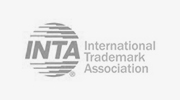18 December 2020
The E.U. Trade Secrets Directive agreed in 2016 adopted several forms across Europe harmonizing a regulation which gives the holder more protection and certainty. Still, each country had its challenges implementing it at national level since they had to be coherent with previous regulations and judicial resolutions sayings over the years.
The purpose behind is, to boost investment, innovation, competition (where the US and China already had done so) and add reduction of costs. Nevertheless, realistically speaking the Directive aims at creating a consistent minimum standard of protection.
The advantages are clear if we compare it with other IPRs, such as patents: first, there is no registration needed, so you do not need to disclose it, and second, there is an definite duration.
In fact, many of the E.U. countries combine it with other IP (patents) regulations. Even though the Directive is meant for SMEs, which helps with the patent costs, NDAs will still be playing an important role.
We in Spain look at our neighbors within the E.U. reviewing the same type of provisions implemented under the Law 1/2019, which took into effect on March 13, 2019.
This translates into a set of provisions that:
· Addresses measures to protect innovation, confidential information and unfair practices, and the know-how that employees acquire during their contract.
· Focuses on the role of the employer and how far:
1) secret information is identified,
2) security measures are implemented,
3) legal measures are contemplated, and if there is a breach, how the response would be.
What is missing in the Directive?
A procedure that assists the holder of a trade secret to collect evidence prior to litigation. However, as it happens in Germany and Italy, trade secret holders may help themselves with Patent Law or other IPRs provisions.
Also, the Directive is not mentioning criminal sanctions, which is openly established in Italy, for example.
GERMANY:
In Germany, the implementation of the E.U. Directive took to the Parliament more time than expected due to the controversial protection of employees and whistleblowers.
Within a legislation that already had optimum levels of protection for trade secret holders (along the Unfair Competition provisions), German courts will now have a saying on how far the trade secret holder must go regarding the steps protecting such secret information. Still, Germany needed a sole regulation adjusted to standards of the Directive.
There are some adjustments that needed to be made, for example, regarding the definition of trade secrets. Now it is not enough anymore to show that the information was secret, but the holder also has to prove an actual protection of the information preserving it as secret.
Hence, the legislator in Germany decided to carefully address the preventive measures companies must take, and also the litigation framework when a trade secret is at stake.
The raise of this standard applies to all Trade Secrets. Companies shall review their agreements (NDAs, licenses, employment and the like).
Another highlight is the allowance of reverse engineering which was not permitted before the E.U. Directive entered into force. At the end, this pushes the holder to enter contractual obligations with third parties.
In case of infringement, for the determination of remedies, and in order for the judge to grant the seizure or destruction of goods, damages, or compensation, the court will outweigh the market value of the trade secret and the preventive measures taken compared to the repair of the infringer.
Finally, upon the secrecy in legal proceedings, German Trade Secrets Law, allows the transfer of these proceedings to specialized courts and restricts access of to the hearings and the evidences presented.
Overall, it is clear that the main goal of the German legislator which is, insisting on the preventive measures, and placing the burden on the owner to show responsibility for these.
UNITED KINGDOM
For the UK the implementation of the E.U. Directive was more of a challenge compared to the pre-Directive status quo. Unlike Germany and Italy, trade secrets do find support under specific on a specific UK law but it relies mostly on contractual law and laws of equity.
At the first sight, the UK laws governing trade secrets look less strict than the E.U. Directive. However, if we investigate the trends of the UK courts (enhancing appropriate confidentiality measures, express confidentially contracts, as well as the management of delicate documentation within litigation), they complement the E.U. Directive, rather than challenging it.
Regarding whistleblowing (under employment laws) as well as remedies (injunction, profits and damages) is concerned, we will find similar standards under the E.U. Directive.
We are about to conclude the transitional period of the Brexit. Until the end of 2020, the European Union law still applies in the UK (i.e. interpretation of the E.U. Directive).
After the transitional period (i.e. January 1st, 2021) rendered E.U. decisions will not have a binding effect on UK courts. Nevertheless, the Trade Secrets Law based on Directive 2016/ 943(of the European Parliament and of the Council of 8 June 2016) will still be applicable.
ITALY
Italy comes from a different background than the UK or Germany. Prior to the E.U. Directive on Trade Secrets, Italy benefited from the fact that Trade Secrets were part of the Intellectual Property rights definition. In fact, trade secret holders had the same remedies available as patent holders. These are (for example) which is injunctions, damages and/or the benefit obtained, or the removal of infringing goods. Additionally, trade secrets were even included in the so-called Patent Box which implies tax benefits.
Unlike in Spain, that there is no definition by the law but case law, Italy defines Trade Secret as a design, characteristics, functioning, production process or marketing of which significantly benefits from trade secrets unlawfully acquired, used or disclosed. This means that the judge will hear the significant benefit provided throughout this Trade Secret. This will be key.
As it happens in Germany and the UK, Italian courts will take the necessary measures in order to preserve the confidentiality condition of the information disclosed in litigation proceedings.
The major contribution from Italy would be the raise of liability standards, sharing with Spain the inclusion of the Non gross negligence in their respective laws.
What if the precautionary measures by a trade secret holder are evoked? This is a controversial issue since Italian case law is debating, whether or not compensation should be provided to the one who “suffered” the measure, because no actual breach occurred.
Unlike the E.U. Directive, the Italian legislative includes criminal provisions for unlawful use of trade secrets, with imprisonment to up to 2 years. Additionally, the legislator has shown stricter punishments when it comes to computer-based theft.
In conclusion, Italian highlights are the extension of scope of negligence, placing the burden of proof upon the parties which is an essential factor when it comes to determining liabilities.




























Comentarios
No Comments